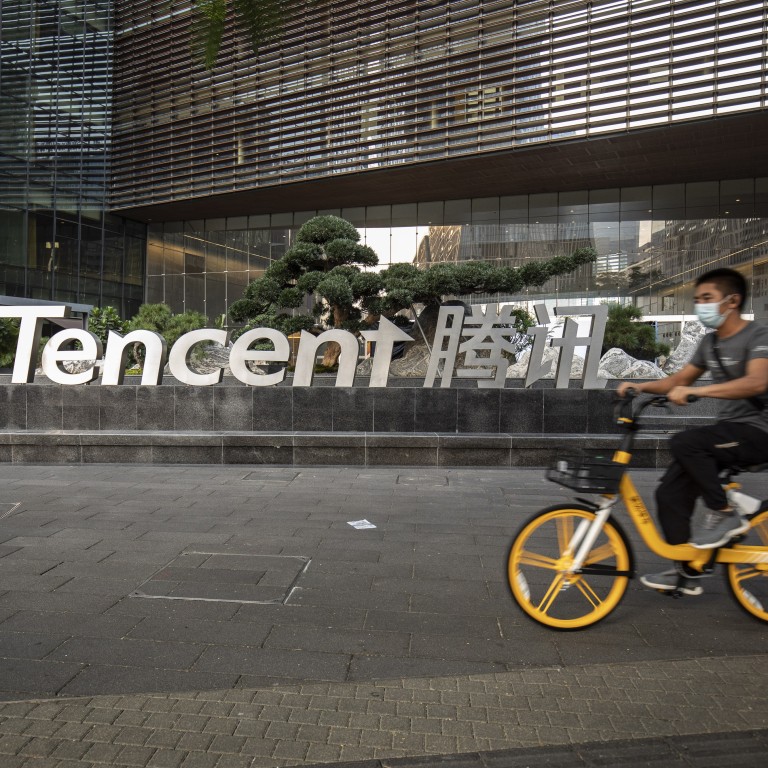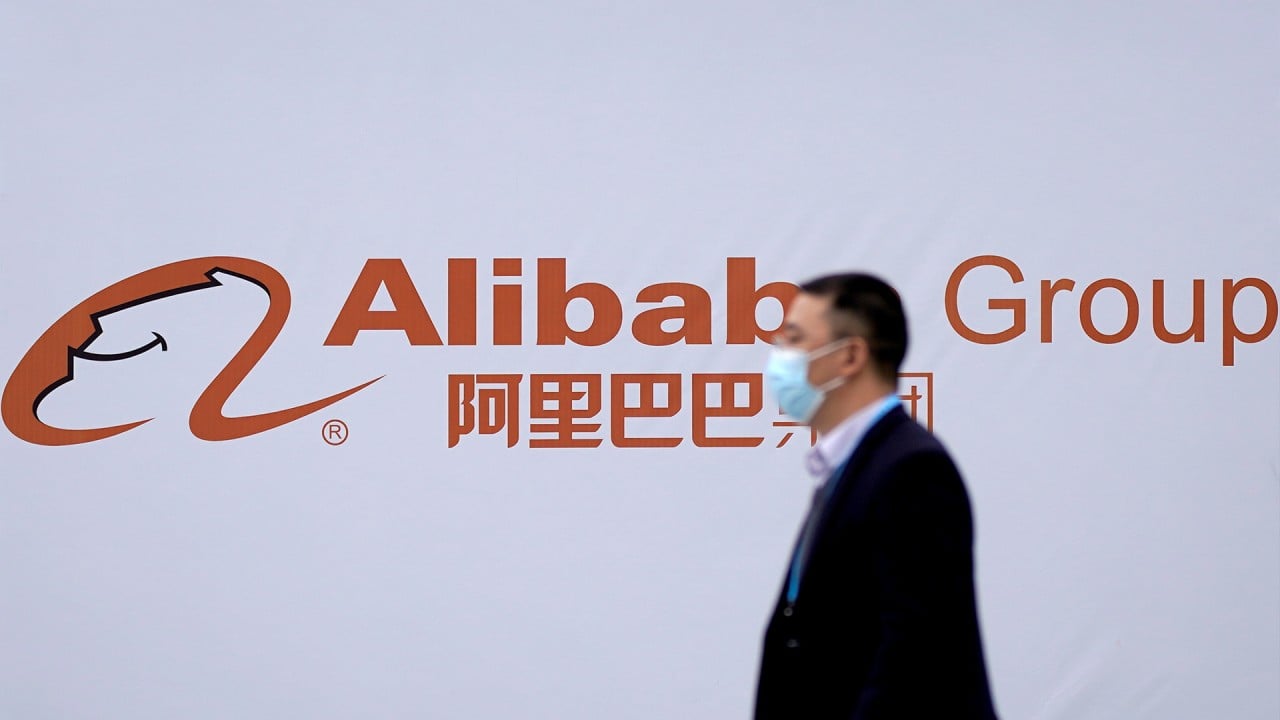
Tencent posts 175 per cent rise in fourth-quarter profit, as it faces tighter scrutiny from Chinese regulators and seeks new growth opportunities
- Tencent’s fourth-quarter profit beat estimates by 80 per cent, reaching US$9.1 billion
- The tech giant’s continued growth faces increasing challenges in its home market, where regulatory scrutiny is hitting its gaming and financial services empire
The Shenzhen-based company’s net profit reached 59.3 billion yuan (US$9.1 billion) in the three months ended December, up from 21.6 billion yuan during the same period in 2019 and 80 per cent above analyst estimates, according to Bloomberg data.
Total revenue rose 26 per cent to 133.7 billion yuan, from 105.8 billion yuan a year earlier, slightly ahead of the consensus estimate of 133.1 billion yuan by 22 analysts, according to Bloomberg data.
The company, which runs the world’s largest video games business and China’s biggest social media operation, said its profit for the full year was up 71 per cent, reaching 159.8 billion yuan in 2020, higher than the 130.2 billion yuan consensus estimate. Total revenue in 2020 grew 28 per cent for the year to 482.1 billion yuan, beating the 481 billion yuan estimate by 53 analysts polled by Bloomberg.
The tech giant’s shares fell 0.8 per cent on Wednesday ahead of the earnings announcement amid a declining market, closing at HK$623.50 (US$80.30). Tencent has lost HK$1.42 trillion in market value since its January 25 peak, more than the GDP of Algeria, pushing back Tencent’s prospects of becoming the first Asian company to reach a US$1 trillion valuation.
China’s antitrust regulator fines Big Tech for unreported M&A deals
Tencent founder and CEO Pony Ma Huateng emphasised the company’s expansion in industrial internet and cloud services and in gaming overseas.
“While 2020 was a year of unprecedented challenges, solid results across all our businesses testify to our focus on user value, technology innovation and business sustainability,” Ma said in a statement.
Despite continued growth, Tencent is facing more hurdles in its home market, where it has been ensnared in China’s crackdown on Big Tech. Regulatory scrutiny has recently hit both the company’s gaming business and financial services, two important areas for the tech giant.
Tencent tests Beijing’s antitrust redline with game streaming merger
Gaming makes up a significant chunk of Tencent’s revenue, growing 36 per cent to 156 billion yuan in 2020, aided in part by lockdowns during the Covid-19 pandemic. Video games made up 29.2 per cent of Tencent’s income last quarter with 39.1 billion yuan, 29 per cent more than the same period in 2019. Mobile games alone took in 36.7 billion yuan for the quarter and 146.6 billion yuan for the year.
“While the e-commerce sector is under pressure from the anti-monopoly investigation, we view the gaming industry as stable, as the sector has experienced strict censorship policies in 2018 and most of the top-ranking games have used anti-addiction systems since then,” Barclays analyst Gregory Zhao wrote in a recent note.
Tencent’s fintech business is another critical area for the company that could be a regulatory target. Revenue for fintech and business services rose 29 per cent last quarter to 38.5 billion yuan, bolstered by commercial payments, with more daily active consumers pushing up the number of transactions. WeChat’s monthly active users reached 1.2 billion in 2020.
Spinning off all of its fintech endeavors could be a more complicated task for Tencent, however, as they are spread out across the company’s entire ecosystem, only converging on its ubiquitous WeChat app, the country’s second-largest mobile payment platform. WeChat saw transactions reach US$250 billion in 2020 through its in-app mini-programs alone, which does not count the trillions of dollars in transactions made through WeChat Pay in other shops every year.
“We have strong self discipline and principals in fintech,” Tencent president Martin Lau Chi-ping said during the earnings call. “Our risk management is tighter and risk is lower than our peers and our expectations. We will focus on creating meaningful products for users and small- and medium-sized enterprises rather than rushing to monetise.”
Tencent insists it is a collaborator, not disrupter, in fintech
Advertising revenues were also up, recovering along with demand after being impacted by the pandemic. Tencent reported 24.7 billion yuan in ad revenue in the fourth quarter, a 22 per cent rise driven by social ads on WeChat.
The company’s investment strategy continues to pay off, as well. The company said additional gains of 32.9 billion yuan in the fourth quarter came primarily from increased valuations of investee companies, which include Chinese and overseas start-ups in areas such as gaming, social media and e-commerce.
“The overwhelming majority of [Tencent] investments are actually minority, non-controlling stakes. Generally speaking, we haven’t used outright mergers or acquisitions actively,” he said during the earnings call. “We will also continue to focus investments primarily on minority stakes, in which we partner with entrepreneurs who are actually running the businesses day to day, rather than on outright mergers or acquisitions.”
Additional reporting by Josh Ye



